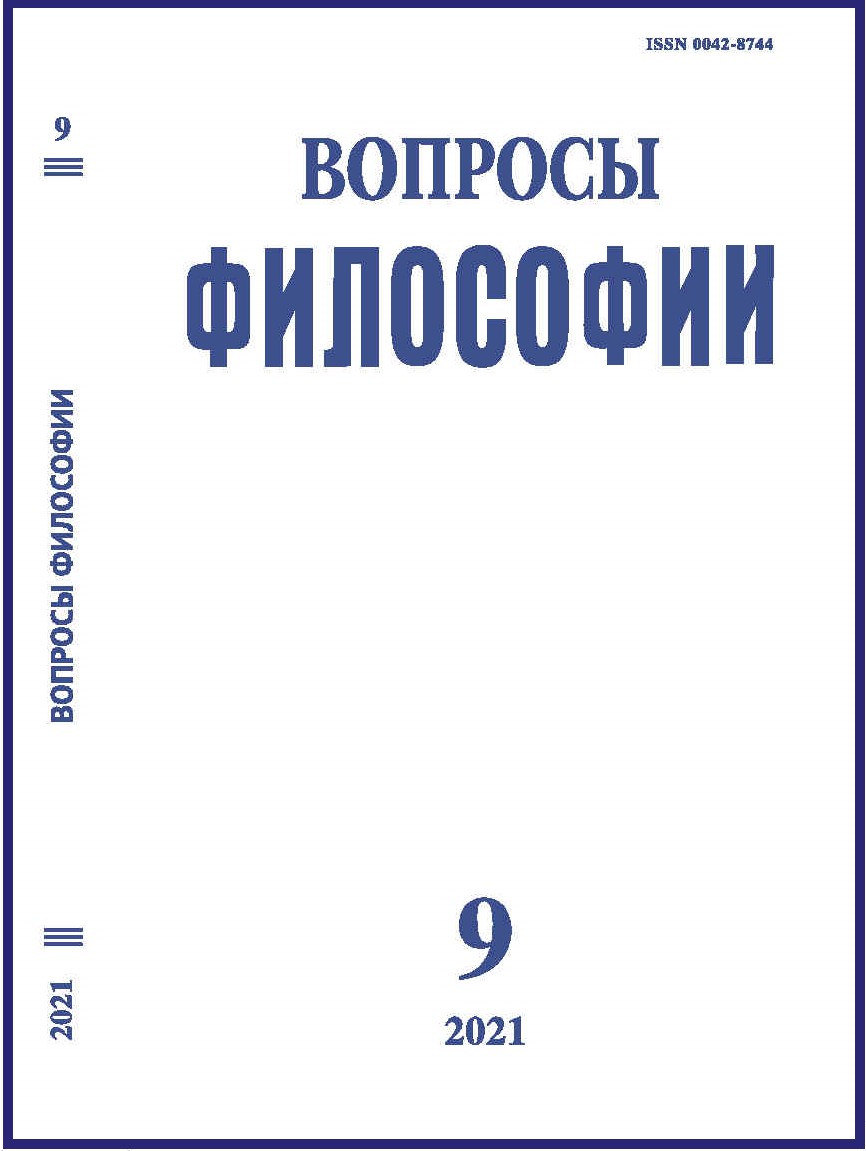The Philosophy of Sobornost as a Prototype of Ferdinand Tönnies’ “Sociological Conservatism”
DOI:
https://doi.org/10.21146/0042-8744-2021-9-49-59Keywords:
organicism, Gemeinschaft/Gesellschaft, sobornost, unity/multiplicity, substantiality, will, historical, Tönnies, Hobbes, SlavophilismAbstract
The article presents a comparative analysis of the theory of Ferdinand Tönnies “Gemeinschaft/Gesellschaft” and the philosophy of catholicity in the works of A.S. Khomyakov and I.V. Kireevsky. The theory of Tönnies is considered in the light of the concept of “sociological conservatism” manifested by A.F. Filippov. It is shown that the conceptual opposition “Gemeinschaft/Gesellschaft” can be seen continuation of the discussion about the “nature of the social”. In this light, the main reference points of Tönnies sociology are the political theories of Aristotle and Hobbes, with an emphasis on the definition of the “natural state” of man. Based on the analysis of Tönnies theory, it is shown that its comparison with Slavophilism is possible in three parameters: appeal to the factor of substantiality, the dichotomy of “historical” and “non – historical” and the use of the concept of “organic”. It is proved that in the context of a “conservative” reading of the philosophy of sobornost, its argumentation turns out to be mainly political and sociological

